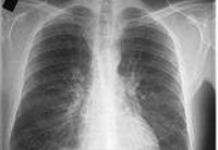В английском языке значение уступки или противопоставления можно выразить несколькими словами. Некоторые из них имеют схожее значение и могут друг друга заменять, а некоторые имеют свои собственные особенности употребления. В этом выпуске мы рассмотрим, в чем заключаются различия между словами despite , in spite of , although , though и however .
Союзы Although и though («хотя») ставятся в начале придаточного предложения уступки, после них должны идти подлежащее и сказуемое:
I started jogging in the morning, although I do not enjoy it.
Я начал бегать по утрам, хотя это мне и не нравится.Although I was very tired, Nancy asked me to unpack some boxes.
Хотя я очень устал, Нэнси попросила меня распаковать какие-то коробки.
Though иногда может стоять в конце предложения и являться наречием. В таком случае предложение звучит, как запоздалая мысль:
I like feeding squirrels. They often get too noisy though .
Мне нравится кормить белок. Хотя они часто начинают слишком шуметь.
Кроме этого, although и though могут использоваться перед прилагательными:
It is a good restaurant, though a bit expensive.
Это хороший ресторан, хоть и немного дорогой.
Предлог Despite («несмотря на») схож по значению с although , но ставится не перед простым предложением в составе сложного, а, например, перед существительным с зависимыми словами, местоимением или герундием:
Despite my poor English, I’ve spent two 2 years in the USA.
Несмотря на мой плохой английский, я провел в США 2 года.Despite always being late, he is a very responsible worker.
Несмотря на постоянные опоздания, он очень ответственный работник.
In spite of («несмотря на») - этот предлог полностью аналогичен despite . Единственное различие между ними заключается в том, что despite имеет несколько более формальное звучание и чаще используется в письменной речи.
The pilots have successfully landed the plane in spite of the heavy fog.
Пилоты успешно посадили самолет, несмотря на сильный туман.
Часто используется в обороте in spite of the fact that :
In spite of the fact that nuclear power can provide large amounts of energy, people are afraid of it.
Несмотря на тот факт, что атомная энергия может обеспечить огромные
Союз However имеет значение противопоставления («однако», «но», «с другой стороны») и всегда выделяется запятыми:
Today’s weather, however , was much better.
Однако сегодня погода была гораздо лучше.
Обычно however в этом значении не рекомендуется ставить в начале предложения, но этим правилом часто пренебрегают:
It was hard. However , he managed to do it.
Это было сложно. Но он смог это сделать.
При необходимости этого можно избежать при помощи точки с запятой:
It was hard; however , he managed to do it.
При использовании в начале предложения без отделения запятой это слово является наречием и имеет значение «как бы … ни», «какой бы ни»:
However hard I tried, I could not focus.
Как бы я ни старался, я не мог сконцентрироваться.
Чтобы потренироваться в употреблении союзов и предлогов, выражающих уступку и противопоставление предлагаем Вам пройти тест на нашем сайте: .
§ 2. Идиомы - устойчивые выражения и словосочетания
sell (someone) short - недооценивать себя или кого-либо
I think Gina is selling herself short when she thinks that she will not make a good actress.
Я думаю Джина себя недооценивает, когда думает, что не станет хорошей актрисой.
get going - разволноваться, рассердиться
Once Marion gets going, there is no stopping her wailing.
Стоит только Мэрион рассердиться, ее причитания уже никому не остановить.
dead to the world - крепко спать
When I came home at about eleven p.m., my husband was aleady in bed, dead to the world.
Когда я прихожу домой в одиннадцать вечера, мой муж уже крепко спит в постели.
doll (oneself) up - разодеться, вырядиться
Dora was all dolled up for Mark’s birthday party.
Дора была вся разодета для дня рождения Марка.
make do with (something) - заменять что-либо
There was no porridge for breakfast, so they had to make do with cornflakes.A
Овсянки для завтрака не было, так что им пришлось заменить ее кукурузными хлопьями.
Изучите следующую ситуацию:
Last year Paul and Joanne had a holiday by the sea. It rained a lot, but they enjoyed themselves.
Год назад Пол и Джоанна были в отпуске у моря. Часто шёл дождь, но они хорошо провели время.
Вы можете сказать:
Although it rained a lot, they enjoyed themselves. (= It rained a lot, but they ...)
Несмотря на то, что часто шёл дождь , они хорошо провели время.
In spite of
Despite
the rain , they enjoyed themselves.
После although (хотя; несмотря на то, что) мы используем подлежащее + сказуемое :
- Although it rained a lot, we enjoyed our holiday.
- I didn’t get the job although I had
Я не получил работу, хотя обладал необходимой квалификацией.
Сравните значение although и because :
- We went out although
it was raining.
Мы пошли гулять несмотря на то, что шел дождь. - We didn’t go out because
it was raining.
Мы не пошли гулять, потому что шел дождь.
После in spite of или despite (= несмотря на), мы используем существительное , местоимение (this/that/what и др.) или -ing :
- In spite of the rain , we enjoyed our holiday.
- I didn’t get the job in spite of having the necessary qualifications.
- She wasn’t well, but in spite of this
she went to work.
Она нехорошо себя чувствовала, но несмотря на это она пошла на работу. - In spite of what
I said yesterday, I still love you.
Несмотря на то, что я вчера сказал, я по-прежнему тебя люблю.
Despite это то же, что и in spite of . Мы говорим in spite of , но despite (без of):
- She wasn’t well, but despite this she went to work. (not despite of this)
Вы можете сказать in spite of the fact (that) ... и despite the fact (that) ... :
- I didn’t get the job in spite of the fact (that)
I didn’t get the job despite the fact (that) I had the necessary qualifications.
Сравните in spite of и because of :
- We went out in spite of the rain . (or ... despite the rain . - несмотря на дождь)
- We didn’t go out because of the rain . (из-за дождя)
Сравните although и in spite of / despite :
- Although the traffic was
bad, we arrived on time. (not
In spite of the traffic was bad)
In spite of the traffic , we arrived on time.
Несмотря на пробки , мы прибыли вовремя. - I couldn’t sleep although I was
very tired. (not
despite I was tired)
I couldn’t sleep despite being very tired.
Я не мог уснуть несмотря на то, что очень устал.
Иногда мы используем though вместо although :
- I didn’t get the job though I had the necessary qualifications.
В разговорном английском мы часто используем though в конце предложения:
- The house isn’t very nice. I like the garden though
. (= but I like the garden)
Дом не очень хороший, хотя сад мне нравится. - I see them every day. I’ve never spoken to them though
. (= but I’ve never spoken to them)
Я вижу их каждый день, хотя никогда с ними не разговаривал.
Even though (но не просто ‘even’) – более сильная форма, чем although :
- Even though
I was really tired, I couldn’t sleep. (not
Even I was really tired ...)
Даже не смотря на то, что я очень устал, я не мог уснуть.
Упражнения
1. Закончите предложения. Используйте although + предложение из рамочки.
I didn’t speak the language
I had never seen her before
it was quite cold
I’d met her twice before
he has a very important job
we don’t like them very much
the heating was on
we’ve known each other a long time
, he isn’t particularly well-paid.
, I recognised her from a photograph.- She wasn’t wearing a coat
- We thought we’d better invite them to the party
, I managed to make myself understood.
, the room wasn’t warm.- I didn’t recognise her
- We’re not very good friends
2. Закончите предложения, выбрав although / in spite of / because / because of.
Do you know how to connect two contrasting ideas using although , even though , in spite of and despite ?
Look at these examples to see how although , even though , in spite of and despite are used.
Although we don"t agree, I think she"s a brilliant speaker.
Even though we don"t agree, I think she"s a brilliant speaker.
In spite of the law, people continue to use mobile phones while driving.
Despite the law, people continue to use mobile phones while driving.
Try this exercise to test your grammar.
Grammar test 1
Read the explanation to learn more.
Grammar explanation
Although , even though , in spite of and despite are all used to link two contrasting ideas or show that one fact makes the other fact surprising. They can all be used at the beginning or in the middle of the sentence.
Despite the rain, we enjoyed the festival.
We enjoyed the festival, despite the rain.
The main difference between although , even though , in spite of and despite is that they are used with different structures.
in spite of / despite
After in spite of and despite , we use a noun, gerund (-ing form of a verb) or a pronoun.
They never made much money, in spite of their success.
In spite of the pain in his leg, he completed the marathon.
Despite having a headache, I had a great birthday.
The train was cancelled. In spite of that, we arrived on time.
Note that it is common to use in spite of and despite with the expression the fact that , followed by a subject and verb.
In spite of the fact that he worked very hard, he didn"t pass the exam.
Despite the fact that he worked very hard, he didn"t pass the exam.
although / even though
After although and even though , we use a subject and a verb. Even though is slightly stronger and more emphatic than although .
I enjoyed the course, although I would have liked more grammar practice.
Although we saw each other every day, we didn"t really know each other.
Even though she spoke very quietly, he understood every word.
She didn"t get the job, even though she had all the necessary qualifications.
though
Though can be used in the same way as although .
Though I wasn"t keen on the film, I thought the music was beautiful.
Though can also go at the end of the second phrase. This way of expressing contrasting ideas is most common in spoken English.
We waited ages for our food. The waiter was really nice, though.
Do this exercise to test your grammar again.
Grammar test 2
Language level
Intermediate: B1
- Log in or register to post comments
- Printer-friendly version
Comments
Why is there not a difference between "in spite of" and "despite", I"m not sure if I"ve just always known this wrong but they have different meanings to me.
I thought "in spite of" meant that you were doing something because of the other thing.
For example, if you were doing something in spite of the law, you are doing it because you are purposely trying to break the law.
Whereas, I thought despite meant you are doing something regardless of the other thing.
For example, if you are doing something despite the law, even though you know its illegal you do it anyway, but you are not doing it because you want to break the law.
I"m not sure how well I explained myself here but I think my confusion comes from the word "spite". If doing something "out of spite" means you are doing it out of annoyance, I guess I just thought that "in spite" meant a similar thing. I"m honestly just still confused, saying something like "The train was cancelled. In spite of that, we arrived on time" just doesn"t right to me because you didn"t arrive on time because you were annoyed about the train being cancelled.
- Log in or register to post comments
Hello emma charles
"spite ", a kind of feeling, is something quite different from the word "spite" in the phrase "in spite of".
Perhaps in some varieties of English, there is a difference in meaning between "in spite of" and "despite", but as far as I know, they are synonyms in standard British English. It might be useful to check several dictionaries to see what they indicate.
The LearnEnglish Team
- Log in or register to post comments
Dear sir,
I am having trouble choosing the right words to fill this blank:"If you sell your house before the end of this month, your taxes will be reduced by almost 30 percent …………..the sale of your home." I have to choose between despite and regardless of. But as far as my knowledge goes, these 2 words used quite similarly. Can you point out the difference between them?
Thankyou so much.
Wish you have a nice weekend^^
- Log in or register to post comments
Hello Quynh Nhu,
Despite and regardless of are both followed by nouns (or gerunds) but there is a difference in the meaning.
Despite is used to show a contrast. If we say A happened despite B, then we mean that normally B would stop A or make it less likely. For example:
I got a loan from the bank despite not having a job.
Normally, not having a job would stop me from getting a bank loan, so the contrast/surprise is clear.
Regardless of does not show a contrast in the same way. Instead, it shows that a piece of information had no effect. For example:
She won"t like you regardless of how nice you are.
Here, the sentence means "it doesn"t matter how nice you are, she still won"t like you". It doesn"t tell us whether or not you are nice, just that it won"t make any difference.
If we use despite then the meaning changes:
She won"t like you despite how nice you are/
Now we know that you are nice, but it is not enough to make her like you.
In your example, I think both forms make sense. The choice is really dependent on the facts of the legal/taxation system and the expectations these create rather than the grammar of the sentence. If selling your house would make you expect to pay higher taxes then despite makes sense. If not, then regardles of would be more likely.
"Despite" и "in spite of"
Если вы ответили in spite of и despite (без of ) - честь вам и хвала. Если же вы ответили in spite of и despite of - не расстраивайтесь. Очень многие делают такую ошибку. (А если вы ответили "не знаю", то вообще все отлично! Потому что сейчас узнаете что-то новенькое :)
Запомните нехитрую штуку: когда нужно сказать "несмотря на", то по-русски мы говорим два слова, а по-английски - или одно или три.
То есть:
Despite
- одно слово.
Несмотря на
- два слова.
In spite of
- три слова.
Еще раз: по-английски может быть либо три слова, либо одно - но не два.
Можно ли так: Roger is hungry in spite of he has eaten eight sausages
?
Прочтите вслух. Не звучит? Правильно, так нельзя.
А как насчет вот такого перевода: Roger is hungry despite he has eaten eight sausages
?
Совсем другое дело, так ведь? Вот только это еще одна распространенная ошибка! Потому что, после in spite of
или despite
нельзя говорить полноценное предложение
(He has eaten). А что можно?
1) Существительное. Например: We went for a walk in spite of / despite the rain
. Мы пошли гулять несмотря на дождь.
(the rain
- существительное).
2) -ing"овую форму (иначе - герундий). Например: We came late in spite of driving
very fast. - Мы опоздали, несмотря на то, что ехали быстро.
(driving
- герундий).
3) Фразу the fact that...
Например: Luke failed the exam in spite of / despite the fact that
he was well prepared. - Люк завалил экзамен, несмотря на то, что был хорошо готов.
То есть нашу фразу про Роджера можно перевести:
1) Roger is hungry in spite of / despite eight big sausages that he has eaten.
2) Roger is hungry in spite of / despite eating eight big sausages.
3) Roger is hungry in spite of / despite the fact (that) he"s eaten eight big sausages.
Итак, суммируем.
1) "Несмотря на" по-английски будет либо in
spite
of,
либо despite
(без of
)!
2) После in
spite
of
и despite
нужно говорить существительное или герундий.
3) После in
spite
of
и despite
нельзя говорить целое предложение. А если очень хочется, нужно сказать despite
the fact that
и потом это предложение говорить.
Слово "although" и его родственники
Теперь давайте поговорим про слово although . Остановитесь на секунду и прочтите его вслух.
Прочли? Если прочли так: /олЗОУ/ - с ударением на втором слоге, а букву З "шепелявя" между зубов, как Станислав Садальский в мультфильме "Падал прошлогодний снег", - честь вам и хвала!
Что оно точно означает? - "Хотя".
Пример: Although
the
gorilla
was
soft
,
the
girl
was
very
afraid
. - Хотя горилла была мягкая, девочке было очень страшно.
Еще пример: Although
my
cat
scratches
all
the
wallpaper
,
I
love
him
. - Хоть мой кот и рвет все обои, я его все равно люблю.
Особо надо отметить, что although часто путают с despite.
Ответьте, пожалуйста: какое предложение правильное - первое, второе или оба?
Jurgen drank all my beer although
it was warm.
или
Jurgen drank all my beer despite
it was warm
.
Правильный ответ: первое предложение звучит отлично, а вот второе звучит примерно, как русское "Юрген выпил все мое пиво, несмотря на оно
было теплое". То есть суть ясна, а грамматически - бессмыслица.
Правильно сказать так:
Jurgen drank all my beer despite the fact that it was warm. (Подробнее см. выше про in spite of и despite ).
Теперь - про though и even though.
Оба они - синонимы although . То есть можно сказать:
Although all my friends like pizza, I can"t stand it.
Though all my friends like pizza, I can"t stand it.
Even though all my friends like pizza, I can"t stand it.
Все три предложения значат:"Хотя все мои друзья любят пиццу, я ее терпеть не могу". В чем же разница между этими тремя словами?
Though употребляется реже, а значит абсолютно то же самое. А вот even though нужно говорить, когда мы хотим не просто сказать "хотя", а прямо-таки подчеркнуть удивление фактом, что так произошло.
Например: Even though 68 men proposed to her , she is still single. - Хотя ей делали предложение 68 раз, она все еще не замужем.
Ну как такому не удивиться? 68 предложений (за 68 лет) - а все еще не замужем.
А теперь - упражнение.
Прочтите предложения и видоизмените их, пользуясь словами в скобках.
Пример: Jack kissed the girl. He didn"t love her. (although) - Jack kissed the girl although he didn"t love her.
- Jack washed his hands. Granny didn"t give him a banana. (although)
- I was driving at 160 kilometres an hour. I arrived late. (even though)
- The singer forgot the lines (забыл слова). The concert was a great success. (despite)
- I didn"t hear my alarm clock. It rang three times. (even though)
- The street musician played for five hours. He earned only 300 rubles. (in spite)
- Henri Toulouse-Lautrec had very short legs. A lot of women loved him. (despite)
- Look! Little Bobby is feeling fantastic. He has eaten one kilo of chocolates. (even though)
- Look! Little Bobby is feeling fantastic. He has eaten one kilo of chocolates. (despite)
- He plays the piano very well. He can"t sing at all (вообще не умеет петь) (although)
- She is a very unhappy woman. She has a rich husband. (despite)
И еще. Делать упражнения, не проговаривая их вслух, - все равно, что изучать вождение, сидя в аудитории. Про карбюратор и аккумулятор известно все - но ведь еще хорошо бы и на практике поводить машинку?
Поэтому-то я и решил записать ключи на аудио. Итак, сделав упражнение, скачайте аудиоключи и прослушивайте mp3 много раз, останавливая после каждого предложения и повторяя вслух за записью. И так раз 20 :)

Вся информация о школе Антона Брежестовского - на новом сайте brejestovski.com .
На наших занятиях вы существенно улучшите свой английский и получите массу удовольствия.
Лучшие места на курс заканчиваются быстро. Успейтие приобрести курсы со скидкой!
Нет возможности заниматься в Москве? Масса недорогих и суперэффективных онлайн-занятий в Магазине онлайн-уроков . и получите в подарок семидневный курс “ Как эффективнее учить английский ”.
Мини-уроки английского по грамматике, словарю и эффективные методы изучения языка.
Для английского языка не вполне характерно наличие 4 лексических единиц, обозначающих одно и то же. Тем не менее, в случае с despite, in spite of, мы должны согласиться, что есть и исключения из этой традиции. Да, значение этих слов одинаково - «несмотря на.., хотя…» Однако есть разница в употреблении последующих за ними слов.
Разница предлогов Despite и In spite of
Despite и In spite of оба переводятся как «несмотря на». Эти слова - предлоги, поэтому после них ставится существительное. Наглядно всю «правду» об этих словах можно представить в виде таблицы.
А теперь давайте посмотрим разницу в употреблении на примерах
- We enjoyed our holiday in spite of the rain.
- Despite the pain in his leg, he completed the marathon.
- Despite having all the necessary qualifications, they didn’t offer me the job.
Осторожно: не перемешивать слова!
Простите за каламбур: несмотря на то, что эти предлоги звучат практически одинаково, путать их употребление нельзя.
Не стоит “of” добавлять к despite - despite of. И наоборот: не рекомендуем “of” убирать от in spite of - in spite.
- Despite the bad weather, there was a large crowd at the match. ☑
- NOT! Despite of the bad weather, there was a large crowd at the match. ☒
- In spite of the bad weather, there was a large crowd at the match. ☑
- NOT! In spite the bad weather, there was a large crowd at the match. ☒
Правило употребления союзов Although, Even though
По аналогии со своими предшественниками эти слова также имеют одинаковый перевод - «хотя». Однако они существенно выделяются в употреблении: это союзы, то есть такие части речи, которые соединяют между собой предложения. Следовательно, после although или even though мы не просто должны поставить одно существительное, местоимение или -ing форму, но и далее сопроводить их глаголом - сказуемым.
- Although he worked very hard, he didn’t manage to pass the exam.
- We decided to buy the house even though we didn’t really have enough money.
Изучив эти примеры можно сделать вывод о том, что союз even though более эмоционально окрашен, является «усиленной» версией although. По значению эти союзы одинаковы, а вот по тональности немного расходятся.
Четверо в одном ряду: правильный перевод на английский
Когда после фразы «несмотря на то, что» необходимо поставить целое предложение, а в голове вертятся только despite или in spite of, выход есть. Необходимо далее поставить фразу “the fact that” и смело добавлять подлежащее и сказуемое.
Таким образом, предложение «Несмотря на то, что он был болен, он пришел на лекцию», можно перевести четырьмя способами:
- Although he was sick, he attended the lecture.
- Even though he was sick, he attended the lecture.
- Despite the fact that he was sick, he attended the lecture.
- In spite of the fact that he was sick, he attended the lecture.


























